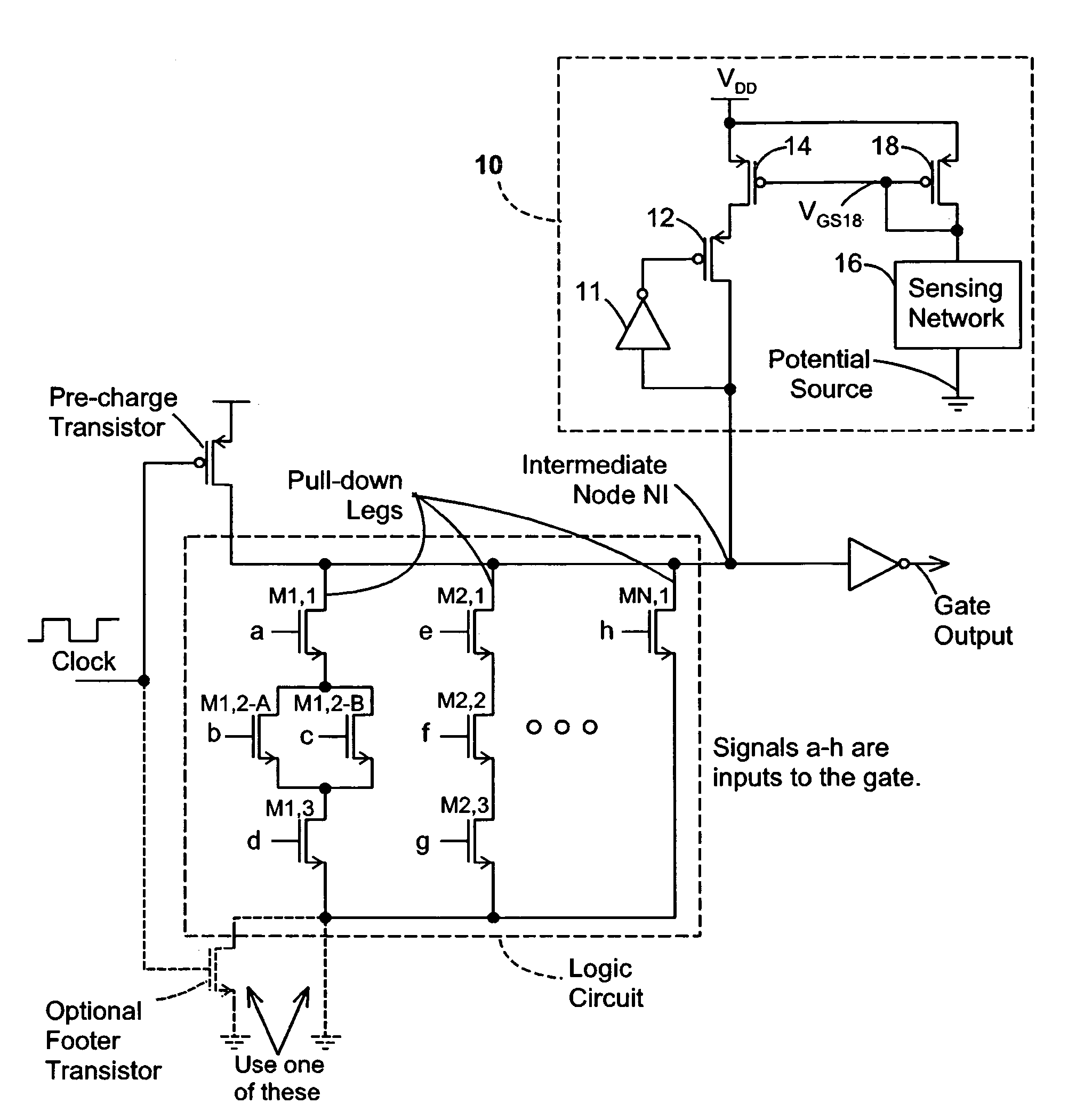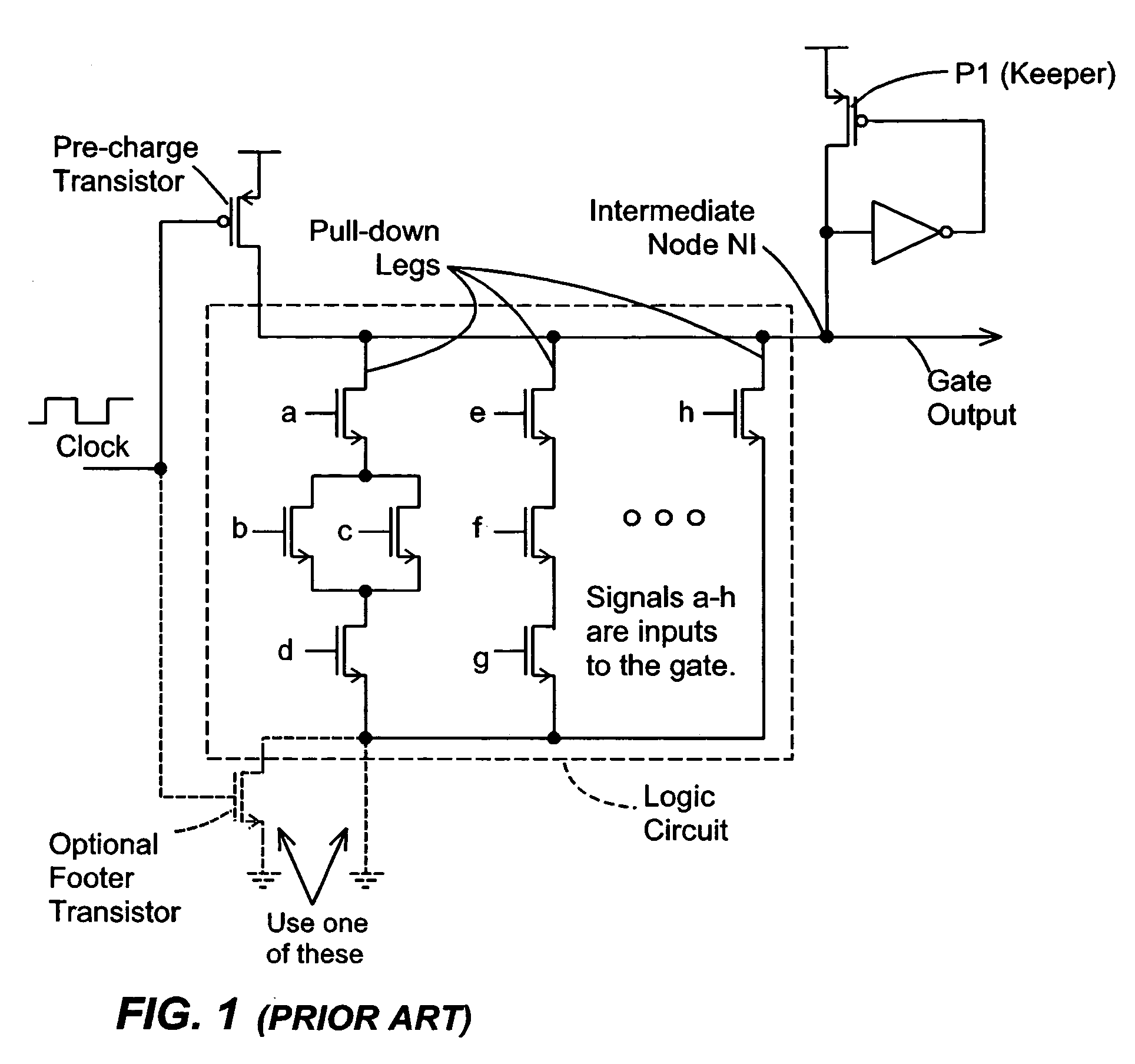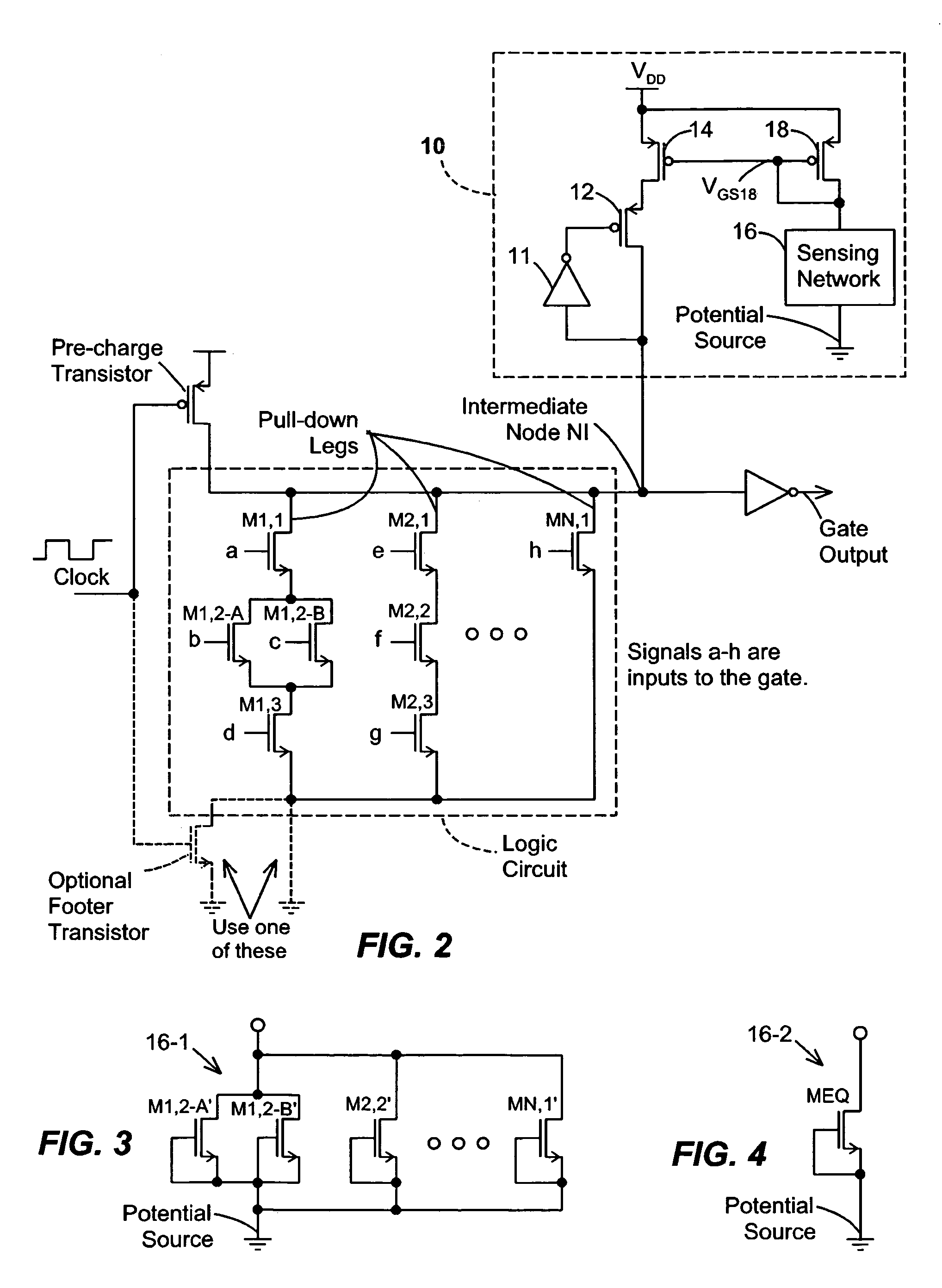Keeper circuits having dynamic leakage compensation
a technology of dynamic leakage compensation and keeper circuit, which is applied in logic circuits, logic functions, pulse techniques, etc., can solve the problems of significant limits on the circuit design of digital dynamic circuits, particularly register files and multi-port srams, and achieve uniform and predictable effects on evaluation times
- Summary
- Abstract
- Description
- Claims
- Application Information
AI Technical Summary
Benefits of technology
Problems solved by technology
Method used
Image
Examples
Embodiment Construction
[0026]Dynamic Domino CMOS circuits have been widely used because they offer faster circuit operation compared to static circuits. A conventional dynamic gate, as shown in FIG. 1, employs a keeper transistor P1 that is designed to compensate for leakage current in the NMOS transistors of the pull-down logic circuit. This keeper transistor is needed to prevent the intermediate node NI from being inadvertently discharged to ground by the leakage current in the event that all inputs a-h remain at “0” during evaluation of the function. The on-conductance of keeper transistor P1 is typically a small fraction of the on-conductance of any of the legs in the logic circuit, otherwise the logic delay will be impaired roughly proportionate to the ratio of the on-conductances. (The pre-charge transistor and the optional footer switch are part of the dynamic gate and do not form part of the present invention. If the footer switch is not used, a conductive short to the second supply line is used.)...
PUM
 Login to View More
Login to View More Abstract
Description
Claims
Application Information
 Login to View More
Login to View More - R&D
- Intellectual Property
- Life Sciences
- Materials
- Tech Scout
- Unparalleled Data Quality
- Higher Quality Content
- 60% Fewer Hallucinations
Browse by: Latest US Patents, China's latest patents, Technical Efficacy Thesaurus, Application Domain, Technology Topic, Popular Technical Reports.
© 2025 PatSnap. All rights reserved.Legal|Privacy policy|Modern Slavery Act Transparency Statement|Sitemap|About US| Contact US: help@patsnap.com



